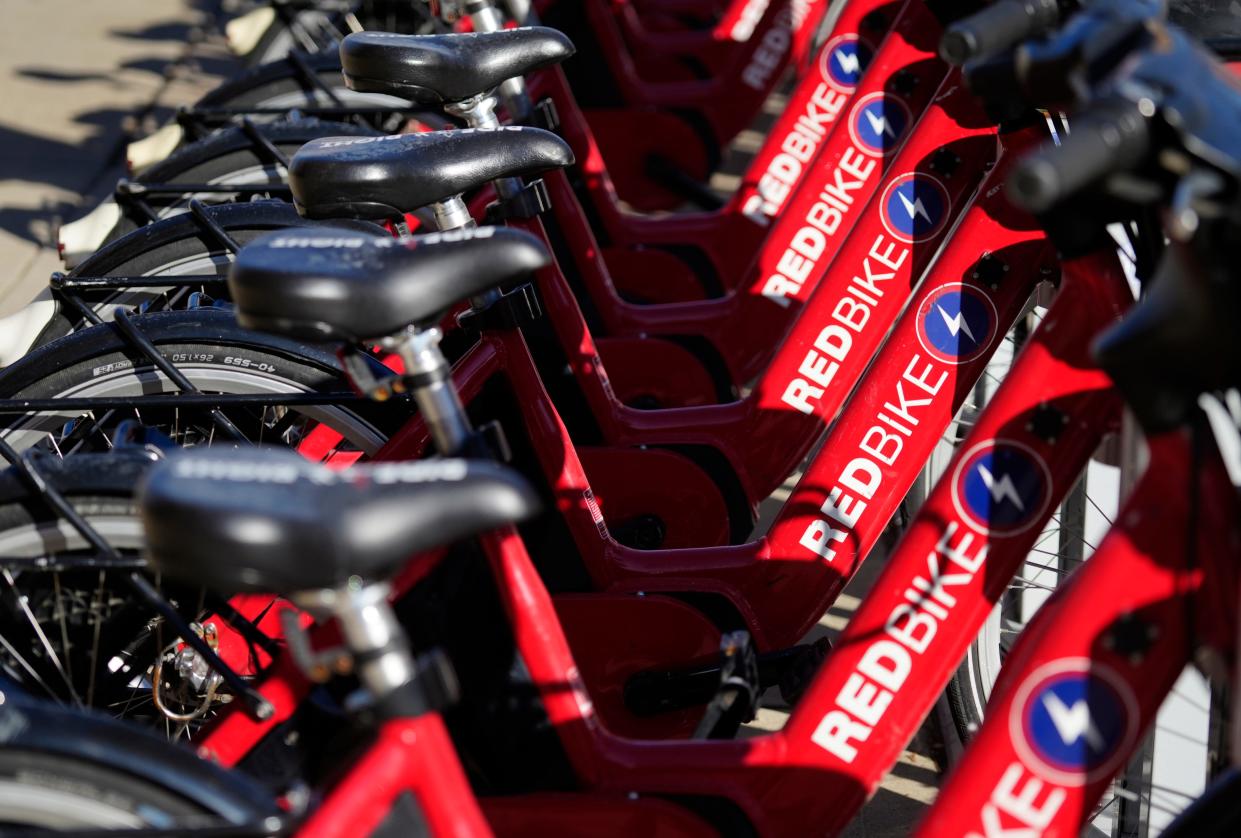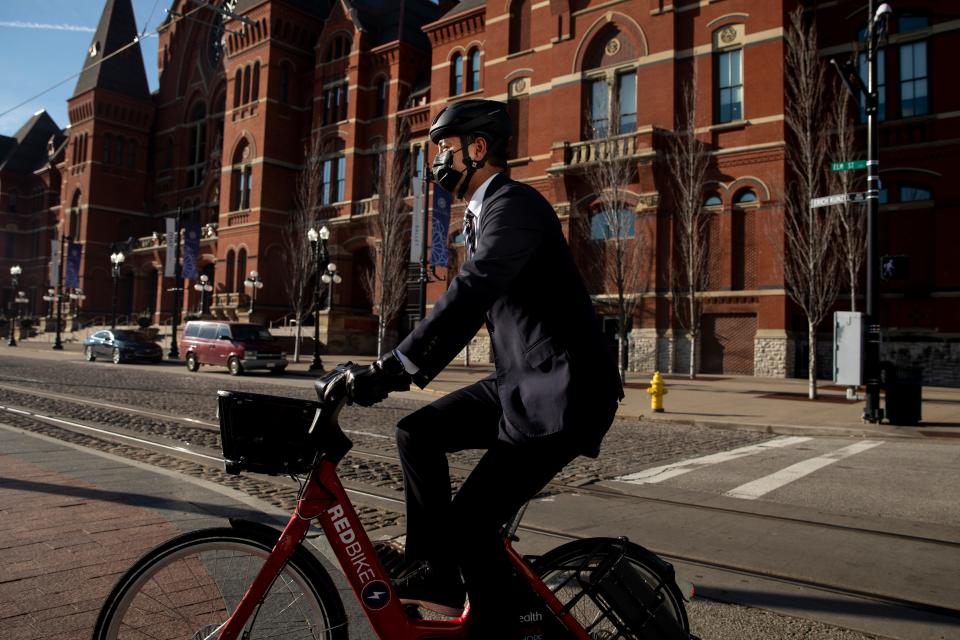Will Cincinnati Red Bike shut down? City officials, fans aim to save ride-share service

Fans of Cincinnati Red Bike are rallying to save the ride-share service following its board's decision to close.
The board of Cincy Bike Share Inc. voted earlier this month to dissolve Red Bike for financial reasons, board chair Anastasia Mileham confirmed Wednesday. That followed its decision to pause the 10-year-old service Jan. 12, after losing lead corporate sponsor UC Health in 2023.
The decision surprised city leaders and bike proponents, who see Red Bike as an integral part of the city's transportation infrastructure.
"We cannot have a truly accessible and connected city without multiple means of transportation," said Cincinnati Mayor Aftab Pureval. "Organizations like Red Bike give the community an opportunity to explore our great city in a fun, easy and affordable way."
Since UC Health's pullout, the organization has put "a lot of asks out there" to replace UC Health, Mileham said, but none have panned out. Now, she said, "We only have so much cash to carry us through a couple of months."
The board has asked Executive Director Doug McClintock to draft a plan to sell Red Bike's 700 bikes, 70 stations, vans and other assets, she said.
Supporters scramble on behalf of Red Bike ride-share
In the meantime, city officials and others are scrambling to prevent a sell-off and shutdown.
Cincinnati City Council Member Mark Jeffreys is leading the effort, saying he was shocked to learn about the board vote.
"I will not see Red Bike shut down. Period," he said.

Jeffreys said he is assembling a group of Red Bike supporters who share his sentiment. Representatives of SORTA, the Cincinnati USA Regional Chamber, FC Cincinnati, Carolann and Ralph V. Haile Jr. Foundation, Greater Cincinnati Foundation and Visit Cincy have accepted invitations with a first meeting to happen in the next few days, he said.
Jeffreys has secured a commitment for $100,000 from the city for Red Bike, Pureval said.
Matt Butler, president of Devou Good Foundation, will join Jeffreys' ad-hoc supporters' group. The Covington-based nonprofit backs multiple transportation efforts, often ones focused on increasing roadway safety and decreasing reliance on cars.
Devou offered Red Bike $50,000 last year but was rebuffed, Butler said. Red Bike turned down the offer because it could not meet a contingency to raise another $100,000 on its own, McClintock said earlier.
Butler said Wednesday that Devou still stands ready to help but needs to learn more about Red Bike's current financial position and contracts, as well as board members' role in fundraising and oversight.

"We would be interested in taking a larger position. We have experience in helping other nonprofits," Butler said, adding that he oversaw more than 200 employees when he ran Signature Hardware. He sold the online retailer to Ferguson Enterprises in 2016.
Wade Johnston, executive director of Tri-State Trails, will also join Jeffrey's effort.
On Saturday, his group is hosting a bike ride in support of Red Bike. It will start at noon at the Sawyer Point Red Bike station. Riders must wear helmets and sign a waiver but do not need to register in advance.
One-third of Red Bike users are lower-income
Red Bike is especially important to its lower-income users, both Jeffreys and Butler noted. Under the Red Bike Go program, which accounted for 36% of all rides in 2023, lower-income riders were paying $5 a month for a Go pass instead of the $18 monthly cost to other riders.
"Most of those folks don't have automobiles," Butler said, suggesting that stations with large Red Bike Go populations be reopened as efforts to keep Red Bike going play out.
Supporters fear Red Bike cannot recover if its board sells off equipment.
"We cannot let them shut down and dispose of their assets," Jeffreys said. "There would be no going back."
On Wednesday afternoon, Mileham said reaction to news of the board vote had given her hope that "there's a possibility we could save the system."
"There is so much support for Red Bike in this community," she said.
Jeffreys and others are right, she added.
"Once we get rid of the assets, it's a lot harder," she said.
City already big Red Bike backer
Red Bike collected just more than $1 million in revenue in 2022, according to its most recent filing with the Internal Revenue Service. About $175,000 of that came from government grants, $303,000 from rider fees and $515,000 from non-government contributions.
UC Health contributed about a quarter million dollars a year to Red Bike from its founding in 2014 until last June.
The city of Cincinnati has also been a key funder, with commitments of close to $1.9 million since 2014, according to city documents. It was not immediately clear exactly how much of that was tax money.
This article originally appeared on Cincinnati Enquirer: City officials, fans fight vote to shut down Red Bike in Cincinnati

